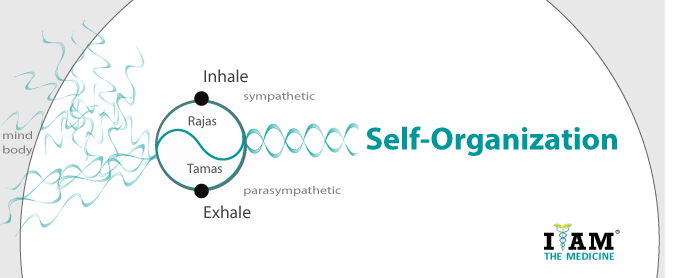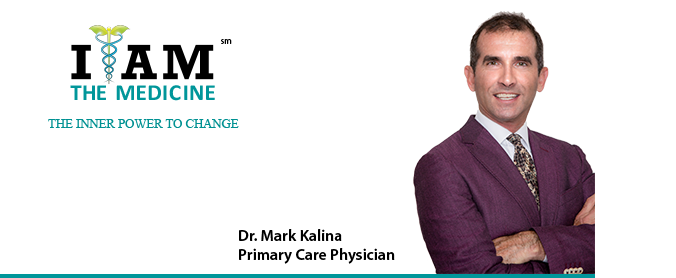Irritable Bowel Syndrome (IBS) is a dysregulation of intestinal function. Those with IBS experience loose stools, diarrhea,…

Summer: Take It To Heart
SUMMER: Take It To Heart by Steve Sterling, L.Ac.
TCM: ANCIENT TRADITION
In keeping with the Traditional Chinese Medicine (TCM) “5 Element” theme (see diagram) the Summer season corresponds with the primary organ of the Heart and the predominant environmental influence of “Summer-heat”.
In TCM sweat is the fluid of the heart. If Summer heat is excessive, or the body’s capacity to sweat is compromised, one can suffer from “heat exhaustion or heat stroke”.
The emotion associated with the heart is Joy and the “internal disharmony” is a lack of Joy. Extremes in either of these ends affects the energetics (Qi) of the heart causing unwanted symptoms. The importance of attending to the “root” cause of “branch” symptoms is an integral part of traditional Chinese medicine in addressing the body, mind and spirit.
FUNCTIONAL MEDICINE (FM): A MODERN PERSPECTIVE
Rather than reaching for a drug to alleviate “branch” symptoms, one can blend the tradition of TCM with the modern approach of Functional medicine, which integrates Western lab testing (blood tests, hormone panels, GI testing). Natural herbal medicinal remedies can correct underlying, or “root”, functional imbalances. These remedies have been shown through the evidence-based medicine model (double-blind, randomized clinical trials in humans) to be effective in treatment. Once optimal function of an organ system is restored, symptoms clear naturally. An analogy for treatment of proper cause: if the temperature warning light in your car turns on, do you place a band-aid so you can’t see it ? Getting to the root of overheating can save you expensive engine repair costs before it’s too late. TCM and Functional medicine are about restoring function at to heal the root level.
ROOT EXAMPLE: the HEART
The concern over elevated cholesterol has become a recent topic of controversy. Statin drugs such as Lipitor and Crestor which are prescribed for lowering cholesterol are the 10th most commonly prescribed drug in the U.S. grossing $5.9 Billion in 2014. Interestingly, they are derived from the Chinese herb “red rice yeast”. In Western medicine theory, arteriosclerosis is caused by cholesterol-based plaque build up in cardiac arteries. Arteries that become too narrowed by accumulation of plaque can lead to an inadequate oxygen supply to the heart. This can precipitate a heart attack.
The use of statin drugs for treatment of plaque is in question. Statin drugs and red rice yeast both deplete the body’s Co-enzyme Q10 (CoQ10) and are associated with leg muscle weakness.* Let’s delve into the main topic of interest regarding the heart, functional medicine and the role of food as medicine.
Cholesterol is manufactured in the liver from triglycerides or obtained from food in our diet. All hormones in the body are manufactured from cholesterol. Cholesterol is present in all membrane structures and function. We get cholesterol from animal fats. But our body also makes cholesterol because it is a vital nutrient, so not all cholesterol is bad. Cholesterol is made up of different types of lipoproteins for example HDL’s, or high-density lipoproteins, (good folks) and low LDL’s, low density lipoproteins (not-so-good folks).
If your total cholesterol is high and your HDL is low, or your LDL is high, you are at risk for cardiovascular disease. FM takes this a step further with VAP, a test that looks at the subtypes of elevated levels of LDL, one of which is less harmful large bouhant type (imagine a beach ball), and a more dense type (imagine basketball).
Eskimos have fewer heart attacks and yet eat high levels of animal fats. They also eat high levels of salmon and other fish containing high levels of Omega-3 fats. Omega-3’s are essential fatty acids. “Essential” means our body will not produce this nutrient, and it is necessary for humans to consume it from an outside source . Two types of Omega-3’s: EPA (Eicosapentaenoic acid) and DHA (Decoshexaenoic acid). EPA assists the conversion of LDL into HDL; this reduces the risk of cardiovascular disease. 60% of your brain is made up of DHA so it plays an important role in brain health as well. Salmon such as deep cold-water salmon from Norway is an excellent source of Omega-3s. Beware of farmed salmon as it can contain bacteria from being raised in closed captivity.
Stress is a contributing factor in increasing the risk of cardiovascular disease. Cytokines, which are molecules that increase immune response, are processed in the liver to produce CRP (C-Reactive protein). Optimal levels of CRP are <1. Higher levels can be an indicator of increased inflammation which increases the risk of cardiovascular disease. A low inflammation diet includes minimizing soy, pasteurized dairy, sugar, carbohydrates, and wheat. Elevated homocysteine (optimal <9) can also be an indicator for increased risk of cardiovascular disease and also predicts prognosis and recurrence in patients with stroke and peripheral arterial disease as well as dementia. Grass fed beef, broccoli, collard greens, whole eggs, salmon, sardines and spinach are foods that help to support optimal levels of homocysteine.
I’ve included a sample breakdown of a commonly avoided food to bring awareness to how misguided information can often lead us AWAY from places packed with nutrition: the egg yolk ! (ie, there are nutrients in the whites).
The heart is a muscle and muscles need nutrients in order to perform optimally. The heart muscle requires calcium and other minerals in order to contract and function. Studies have shown that many people with certain heart irregularities have benefited from calcium supplementation using Cal Lactate. This source of calcium is used directly by the body without having to first be converted.
“The doctor of the future will no longer treat the human frame with drugs, but rather will cure and prevent disease with nutrition” ~Thomas Edison
We are at the cusp of an exciting integration where East and West heal by joining at the root for uplifting of the heart of the humanity.
* Pharmaceutical companies have invested in and created foundations which “evaluate” the research of the effects of elevated cholesterol on heart health. These have influenced the FDA and the Western medical “standard of care” for prescribing statin drugs. A study published in The American Heart Journal (January 2009) analyzing 137,000 patients admitted to hospitals in the United States with a heart attack demonstrated that almost 75% had “normal” cholesterol levels. www.spacedoc.net “Saturated fat and cholesterol in the diet are not the cause of coronary heart disease. That myth is the greatest scientific deception of this century, perhaps any century.” – George V Mann, MD, 1991 Co-Director of the Framingham Heart Study and Professor of Medicine & Biochemistry Vanderbilt University.

Steve Sterling, LAc, HHP, MSTOM is an Acupuncturist, Chinese Herbalist, and Personal Trainer & Fitness Instructor at Eight Elements West, an Institute for Somatic Training and Integrative Wellness dedicated to elevating the human experience through Somatic Movement, Seasonal Nutrition, and Eastern Medicine.
For Acupuncture/Chinese Herbal medicine: Acupuncture, Herbal Medicine, Functional Medicine, Stretching and Strength Training, Qi gong & Tai chi.


